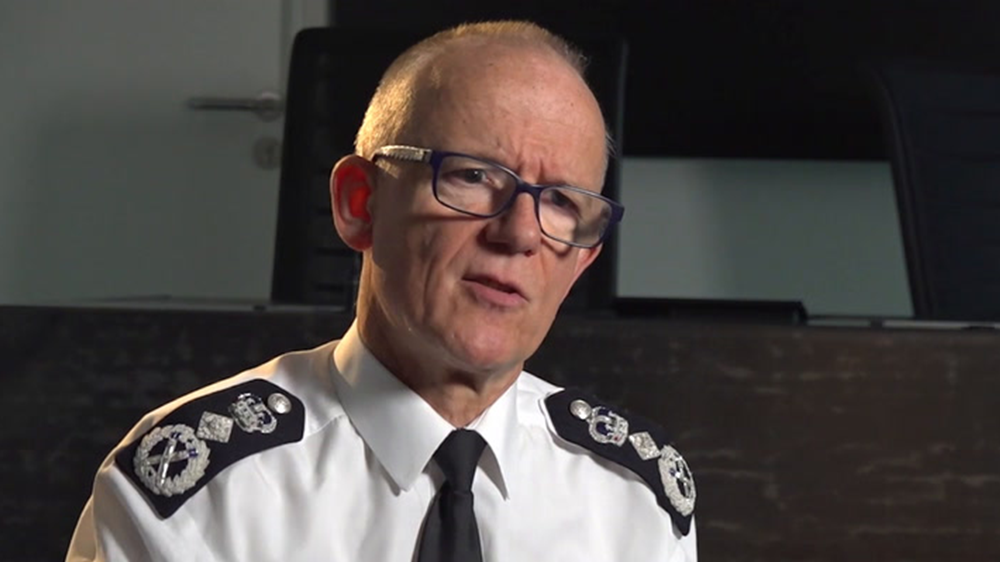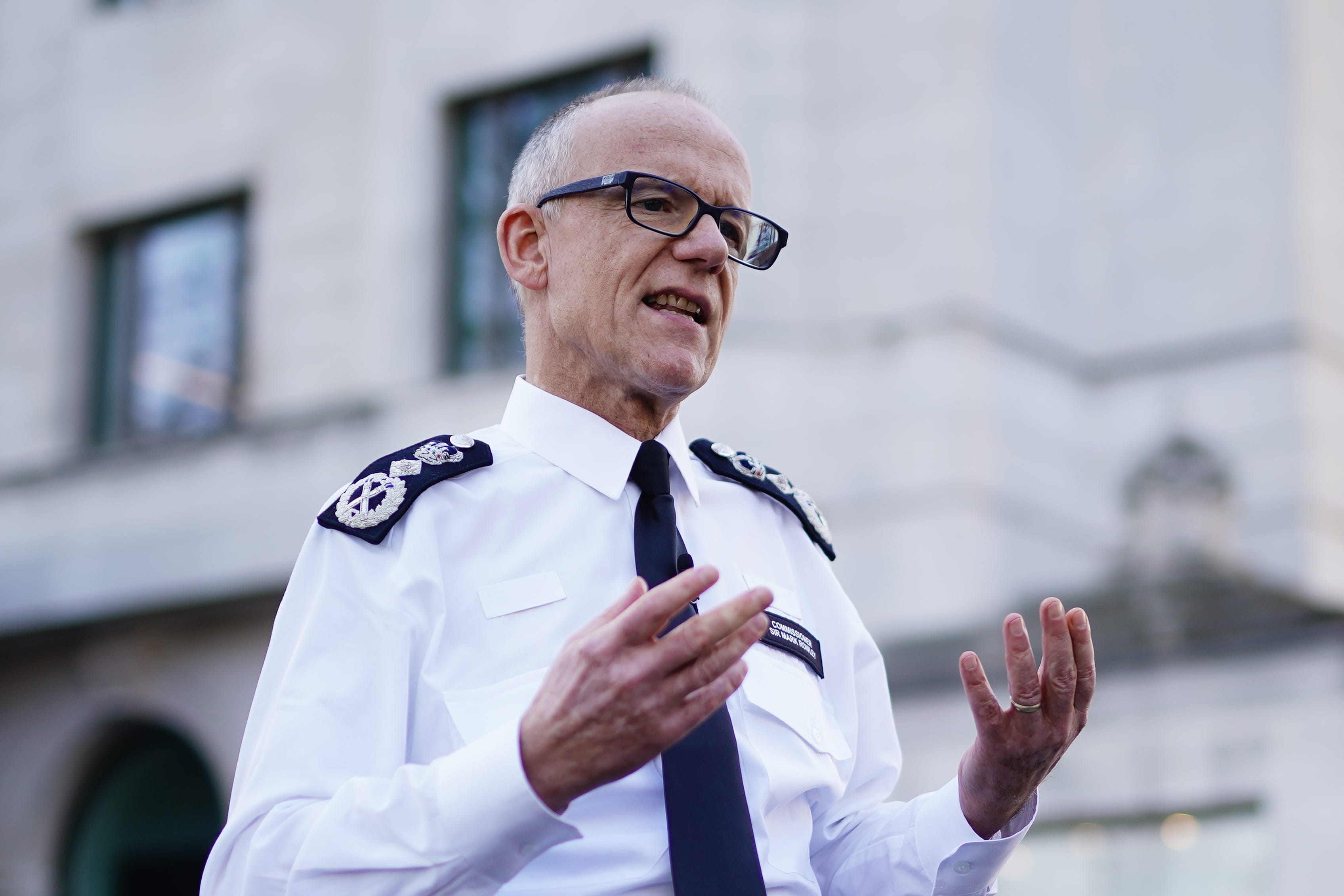Met chief Mark Rowley says he is deeply sorry for police failings in excruciating interview
Baroness Louise Casey finds ‘culture of denial’ allows predators to flourish
Your support helps us to tell the story
From reproductive rights to climate change to Big Tech, The Independent is on the ground when the story is developing. Whether it's investigating the financials of Elon Musk's pro-Trump PAC or producing our latest documentary, 'The A Word', which shines a light on the American women fighting for reproductive rights, we know how important it is to parse out the facts from the messaging.
At such a critical moment in US history, we need reporters on the ground. Your donation allows us to keep sending journalists to speak to both sides of the story.
The Independent is trusted by Americans across the entire political spectrum. And unlike many other quality news outlets, we choose not to lock Americans out of our reporting and analysis with paywalls. We believe quality journalism should be available to everyone, paid for by those who can afford it.
Your support makes all the difference.The head of the Metropolitan Police has apologised in an excruciating interview where he refused to describe racism, misogyny and homophobia in the force as "institutional".
Sir Mark Rowley was unable to rule out there being another Wayne Couzens or David Carrick within the force’s ranks as he responded to a damning report that concluded the Metropolitan Police needs a “complete overhaul” to restore public trust.
He accepted that there were “toxic” individuals remaining in the force who he is determined to root out, but could not guarantee there were no serving officers who had been found guilty of domestic abuse or indecent exposure.
In a difficult interview with Sky News on Tuesday, he said: “I absolutely accept the diagnosis that Louise Casey comes up with. We have racists, misogynists and homophobes in the organisation. And it’s not just about individuals. We have systemic failings, management failings and cultural failings.”
Pushed on the reason he would not use the term “institutional”, Sir Mark said he thinks it is “a very ambiguous” term.
“Everyone uses different definitions,” he said, adding there are “toxic individuals” in the Met who are in the process of being removed.
“We’ve got toxic individuals, some of whom who’ve got concerns about their predatory behaviour. We’ve got people suspended. We’ve got people under investigation. We are rooting them out of this organisation,” he said.
Sir Mark declined to give a number on how many and said an update on this work will be published by the end of March.
He said he was “deeply sorry” for the “appalling examples of discrimination, the letting down of communities and victims and the strain felt by the frontline” which he admitted were both “unacceptable” and inexcusable.
A review of the Met by Baroness Louise Casey, sparked by the murder of Sarah Everard, concluded that a “culture of denial” has allowed predators to flourish in the country’s biggest force.

Two of the best-resourced units, the Specialist Firearms Command and the Parliamentary and Diplomatic Protection Command, had the worst culture, Baroness Casey said.
Austerity “disfigured” the Met with cuts between 2010 and 2019 leaving women victims “thrown to one side”.
Fridges containing evidence for rape cases were broken, meaning cases were dropped. Alleged domestic abusers, including an officer accused of rape, remain in service.
Sir Mark described the findings in Baroness Casey’s report as "deeply worrying", adding that you cannot read the report and not be "upset, embarrassed and humbled".
The findings came after a woman told The Independent that her former partner, who is a serving armed Metropolitan Police officer, escaped prosecution for domestic abuse after interfering with the investigation and deleting potential evidence from his phone.
He has been put on restricted duties, but not suspended, as Scotland Yard considers whether to bring disciplinary action over her allegations of violent outbursts and controlling and coercive behaviour.
There were numerous examples of discrimination, bullying and harassment against officers who were female, gay or Black, with those responsible being let off or even promoted after complaints.
“We have found institutional racism, misogyny and homophobia in the Met,” the report said.
“In the absence of vigilance towards those who intend to abuse the office of constable, predatory and unacceptable behaviour has been allowed to flourish.”
The review detailed numerous horrific cases of abuse and discrimination by officers, against both the public and their own colleagues.

A female officer told how she was the victim of rape and domestic abuse by a male colleague, who remains in the force despite her reporting him and handing over evidence.
Days after the murder of Ms Everard, she received a one-line email from the Directorate of Professional Standards saying no action would be taken.
“The Met was coming out saying, ‘We hate violence against women and girls, we stand against this’, and I was thinking, ‘No you don’t’,” the female officer said.
“Did I need to die in order for you to take me seriously and actually look at this sort of stuff?”
The review found that existing processes “do not effectively root out bad officers”, and that recruitment and vetting safeguards are poor.
Baroness Casey called for the Met to “change itself”, adding: “It is not our job as the public to keep ourselves safe from the police. It is the police’s job to keep us safe as the public. “Far too many Londoners have now lost faith in policing to do that.”
She urged the force’s leaders not to repeat the “tick-box” approach to years of damning reports dating back to the murder of Stephen Lawrence, and warned that the Met may need to be broken up if it does not improve.
“The Met does not easily accept criticism nor ‘own’ its failures,” the report concluded. “One of the saddest aspects of this culture of denial is that many of the issues highlighted in this report have been known about, reported on and investigated before.”
The review made 16 recommendations and said the changes need to be made by the Met, the Mayor’s Office for Policing and Crime and the Home Office to “create a radically improved” force.
In a separate interview, Sir Mark played down suggestions that a new name, following the example of the Royal Ulster Constabulary becoming the Police Service of Northern Ireland, could help address the lack of confidence in the Metropolitan Police.
The Met Commissioner told BBC Radio 4’s Today programme: "I think it has to be a new beginning. I don’t know whether new names just looks like a sort of a branding exercise.
"I think people just see it as a brand and I think there’s a danger with that." He also pointed to concerns he would have with any major restructuring or break-up of the force.
"In terms of shape and structure, London is a big, complex city. It’s an amazing city... To try and break up the policing of that you would create such boundary issues that it would be very difficult.
"We can create chaos and an appearance of busyness and energy by doing some big structural thing. Actually, it will just get in the way of getting under the surface and digging deep, lifting stones and dealing with what’s there and changing the culture."
The mayor of London, Sadiq Khan, said the review must be a “turning point”, adding: “I’ll be unflinching in my resolve to support and hold the new commissioner to account as he works to overhaul the force.”
The home secretary said she would hold Sir Mark “to account to deliver a wholesale change in the force’s culture”.
“The government is also driving forward work to improve culture, standards and behaviour across policing, including strengthening vetting and reviewing the dismissals process,” Suella Braverman added.




Join our commenting forum
Join thought-provoking conversations, follow other Independent readers and see their replies
Comments